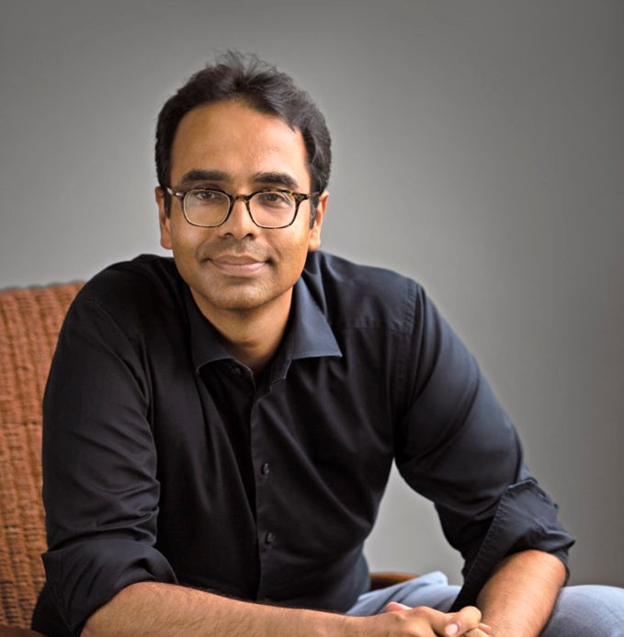Whitehat Jr. Founder and perennial business innovator Karan Bajaj developed Whitehat’s cutting-edge edtech program as a coding learning tool for children and adolescence.
Bajaj was interviewed recently on Mashable about AI and more. Here’s a summary of that interview, his thoughts on AI, and the future of coding education.
The Fourth Industrial Revolution

Karan Bajaj believes we are nearing what will be known as the Fourth Industrial Revolution, where people will have to learn and refine the skills needed to succeed in AI tech.
Currently, it’s estimated that 65% of children now entering school may have jobs that don’t currently exist.
Bajaj’s tech innovations are designed to help children create their own games with programming, which can help them learn while also having fun.
Machine Learning
Karan Bajaj believes machine learning, a subset of AI tech, is another burgeoning technology quickly transforming how we work, play, and live. One example he gave is Netflix, particularly how the entertainment streaming service recommends media based on what you have watched in the past.
Bajaj adds that people should learn early and keep learning. But for those that never learned early, it’s always better late than never. Bajaj believes not enough countries, families, and educators teach kids to see the world as an experimental playground. He also encourages people to seek out a mentor who can teach people more about AI whenever possible.
Ethics on AI
AI ethics have been in the discussion for some time, with many often wondering where the line is between man and machine.
Karan Bajaj believes it’s essential to educate the public about AI ethics, particularly as AI takes over much of our products, services, and technology. The trick, says Bajaj, is to have AI act intelligently without succumbing to basic human biases.
AI and Education
Karan Bajaj believes that while the current academic system attempts to teach children about AI and programming, there still needs to be a better, more holistic approach.
Education, according to Bajaj, needs to adapt and collaborate with those with a more specialized understanding of the field, including WhiteHat Jr.
WhiteHat Jr.’s goal is to bring its interactive program and approach to schools around the world. To date, companies like Microsoft and IBM have utilized and worked with the Whitehat program.
Bajaj argues there are three fundamental differences between Whitehat Jr and its competitors in the edtech marketplace.
First, there’s the curriculum, which computer scientists at MIT/IIT create.
Second, Whitehat Jr. teachers have experience and special training in programming education, a quality many other teachers do not. This includes teachers who simply recite from a textbook and generally do not work with programming techniques in their daily lives.
The third difference involves flexibility. Whitehat leadership is now offering schools the flexibility and opportunity to collaborate and form clubs for coding outside of their normal curriculum.
Whitehat Jr.’s goal isn’t just to help kids experiment with product creation but to generate market-ready products that make a real impact on the world.
On Making Kids Understand
One question parents generally have about teaching AI to children is how it can be taught to those without a full grasp of its many complexities.
Karan Bajaj believes AI concepts can be broken down and taught to any child at any age. However, he believes that by teaching AI through layers of abstraction, such as decision trees, it’s often easier for children to absorb AI concepts and achieve the understanding needed to move forward quickly.
Bajaj even quoted Einstein, who once used the example of explaining ideas to a grandmother as a way to approach AI programming education.
This method then moves to the next step: teaching kids about linear regression, clustering, and other important AI concepts. More advanced concepts are taught later, allowing children to learn and grow at the best-suited pace for each individual.
What Karan Bajaj Hopes to Achieve
Karan Bajaj’s goal is to provide the younger generation a great opportunity to learn to code and become creators. As he knows, young children often learn and absorb information at a much faster rate than those at a more advanced age.
And by providing this instruction early, children can not only gain invaluable access to coding instruction. Still, they can learn to solve problems and reason — skills that will serve them throughout their lives.
According to Bajaj, such an approach can inspire creativity and cultivate interest in art and entrepreneurship at an early age. But, as Bajaj knows, learning coding isn’t just about computer science but also about providing children the skills needed to be successful in the future.
Whitehat Jr.’s website is available here. We recommend trying it out if you want to teach your kids to code.










